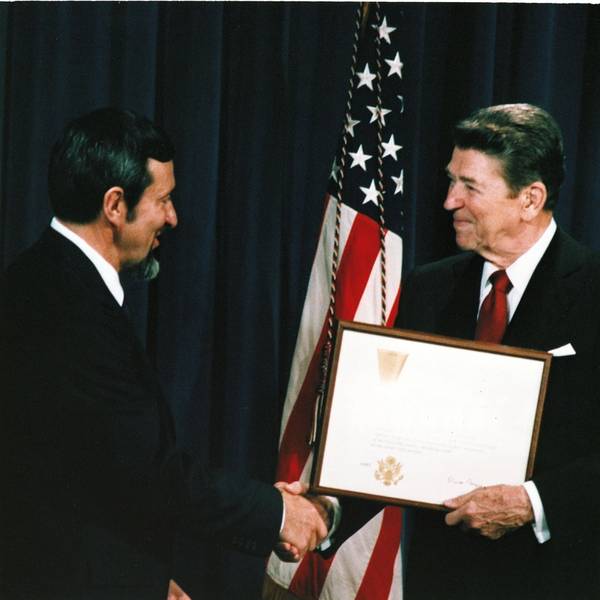
The members of Waterways Council, Inc., (WCI) the national organization that advocates for a modern, efficient, well-maintained system of ports and inland waterways, recently met in Washington, DC with Members of the 119th Congress to discuss WCI key and related priorities for 2025.
An ancillary issue that WCI is looking to address is the removal or modification of an antiquated 1980s Executive Order (EO) 12322 that mandates any federal or federally assisted land or water resources project proposal must first be submitted to the Office of Management and Budget (OMB) for review before being presented to Congress for approval.
Some background is required:
The U.S. Army Corps of Engineers’ Civil Works mission is to develop, manage, and protect the Nation's water resources to “support national security, democracy, and prosperity.” Program areas include Flood Risk Management to reduce the risk of flood damage; Navigation; Environmental Restoration to protect and restore aquatic ecosystems; and Emergency Response to provide disaster relief services.
The Corps was created in 1824, when President James Monroe signed into law a bill to improve navigation on the Ohio and Mississippi Rivers. And while Corps’ projects are large and complex, the Civil Works mission has evolved over time to incorporate new regulations, policies, shifts from political pressures, and unfortunately, bureaucracy that is often cumbersome. And infrastructure projects with such colossal impact on the U.S. economy and communities are sometimes controversial and politically sensitive.
To offer transparency and promote public involvement, Corps’ water resources projects are developed and recommended to Congress for authorization after an extensive public planning process that ensures the project is economically justified, environmentally acceptable, and technically achievable.
The modern-day Corps Civil Works program is often connected with the Reagan Administration, which made seismic policy changes in the 1980s that reformed how projects are justified, how they are funded by adding cost-share requirements from non-federal partners, how conservation is considered in the process, and how oversight by the Administration’s OMB became integral.
But President Jimmy Carter mistrusted the Corps’ ability to recommend projects that were economically justified and to protect the environment and this sowed the seeds for policy changes to come. Proving the phrase “all politics are local,” the project at the center of President Carter’s attention was a proposed dam project on the Flint River in his home state of Georgia. In 1977, he announced a major review of 320 water resource projects, after questioning their compliance with environmental laws and doubting that many projects remained justified under the existing economic conditions. Ultimately, Carter suggested eliminating funds for 19 water resources projects, sparking backlash from Congress and a debate on whether certain water projects were worthy of investment from American taxpayers.
Following Carter’s defeat in 1980, the incoming Reagan Administration maintained the previous Administration’s priority to reform the Corps of Engineers. And in 1981, Reagan issued Executive Order 12322 to mandate that OMB review, prior to Congress, any federal or federally assisted land or water resources project proposal.
But over the last several decades, OMB has broadened its interpretation of the EO to withhold nearly all information, including outyear funding needs, up-to-date project capabilities, approval of innovative acquisition strategies, and other information critical to Congressional decision-makers.
While perhaps once intended to improve coordination and remove duplicative processes, the EO has now effectively created an unnecessary choke point for basic, fact-based data and information. This information is often not budget-sensitive or based on policy; instead, it allows OMB to overrule the judgement of technical experts, economists, scientists, and professional engineers.
An example of over-reach of government, there are real-world consequences of mislabeling almost all basic, factual information as “budget sensitive” by OMB which results in negative and sometimes devasting impacts on the Corps’ relationships with their project partners and the general public. The lack of transparent and objective information, coupled with inconsistent communication, has eroded trust in the Corps’ ability to execute its water resources projects effectively.
Today, it often takes decades for the Corps to complete a single project. As timelines slip and cost overruns continue to grow, our Nation cannot afford this unnecessary bureaucracy. In many ways, this 44-year-old Executive Order has unfairly contributed to today’s view of the Corps not being more efficient in building critical navigation or other water resources projects.
WCI is urging that the Trump Administration revisit EO 12322 and address the excessive bureaucracy that delays the economic benefits and access by shippers to world-stage competition that results from modern, efficient waterways’ infrastructure.



